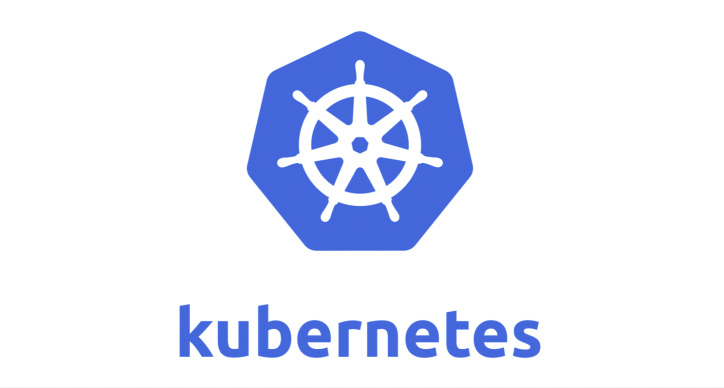
Kubernetes is an open source system for automating the deployment, scaling and management of containerized applications.
It groups containers that make up an application into logical units for easy management and discovery.
Kubernetes builds upon a decade and a half of experience at Google running production workloads at scale, combined with best-of-breed ideas and practices from the community.
Kubernetes is hosted by the Cloud Native Computing Foundation (CNCF). If you are looking for an enterprise-grade solution, you can find vendors who offer support services for Kubernetes.
Kubernetes is a portable, extensible open-source platform for managing containerized workloads and services, that facilitates both declarative configuration and automation. It has a large, rapidly growing ecosystem. Kubernetes services, support, and tools are widely available.
With Kubernetes, you can easily manage containerized workloads at scale, ensuring high availability and performance for your applications.
Whether you are just getting started with containers or looking to scale up existing applications, Kubernetes makes it easy to deploy and manage containerized workloads across clusters of hosts.
So if you are looking for an easy way to automate the deployment and management of your containerized applications, then Kubernetes is the solution for you.
Table of Contents
What is Kubernetes is used for?
Kubernetes is a powerful tool that enables you to easily deploy and manage containerized workloads at scale.
It offers a suite of features that allow you to easily orchestrate your containerized applications, guarantee high availability and performance, and more.
Whether you are just getting started with containers or looking to scale up existing applications, Kubernetes makes it easy to deploy, manage, and optimize your containerized workloads across clusters of hosts.
Kubernetes Tutorial: How to Get Started
If you’re new to Kubernetes and want to learn how to get started, check out our Kubernetes tutorial.
This brief tutorial will walk you through the basics of setting up a Kubernetes cluster and deploying applications to it.
Kubernetes Documentation
The official Kubernetes documentation is a great resource for learning more about Kubernetes.
It covers all of the core concepts and features in detail, and also provides tutorials and guidance on how to get started with Kubernetes.
Kubernetes Forums
The Kubernetes forums are a great place to ask questions and connect with the Kubernetes community. You can also find a wealth of information and resources here.
Kubernetes Github
The Kubernetes Github repository is the primary source for the Kubernetes codebase. It is also a great place to find documentation, examples, and tools related to Kubernetes.
So if you are looking for a powerful tool to help you easily deploy and manage containerized workloads at scale, then Kubernetes can be a great solution.
Whether you are just getting started with containers or looking to optimize your existing applications, Kubernetes makes it easy to get started, and offers a robust suite of features that can help you achieve your goals.
Quarkus
Quarkus is an open-source Java programming language framework for Kubernetes and serverless web development.
It works with nearly all popular Java libraries, standards, and frameworks (like Springs and Microprofile).
The framework lets developers optimize container-native applications for peak performance, resulting in faster startup times, lower memory consumption and reduced host costs.
The project has over 11,000 stars on GitHub.
What’s next for Quarkus
Quarkus is part of the Kubernetes Tools trend.
Kubernetes is an open-source platform for managing container workloads and services.
85% of organizations believe Kubernetes will be critical to future container use.
Other examples of trending Kubernetes tools include:
Minikube enables organizations to run Kubernetes locally.
Helm is used to manage packages of pre-configured Kubernetes resources.
Okteto is a tool designed to accelerate the process of developing applications on Kubernetes.
Kubernetes vs. Docker: Is Kubernetes the same as Docker?
Although Kubernetes and Docker are both tools that are used to manage and deploy containerized applications, they are actually quite different.
While Kubernetes is a system for managing containerized workloads at scale, Docker is simply a tool for managing containers.
Which is better Kubernetes or Docker?
There is no clear answer to this question, as it depends on your specific needs and preferences.
If you are looking for a comprehensive solution that can help you easily orchestrate your containerized workloads, then Kubernetes is the right choice.
But if you simply need a tool to manage your containers, then Docker may be the better option for you.
Is Kubernetes easy to learn?
Kubernetes can be a bit complex to learn, especially if you are new to container orchestration.
However, there are plenty of resources available that can help you get started with Kubernetes and master its key concepts and features.
So if you are willing to put in the time and effort, Kubernetes is certainly not difficult to learn.
Is ECS better than Kubernetes?
There is no clear answer to this question, as it depends on your specific needs and preferences.
If you are looking for a comprehensive solution that can help you easily orchestrate your containerized workloads, then Kubernetes is the right choice. But if you simply need a tool to manage your containers, then ECS may be the better option for you.
Is Kubernetes free?
Kubernetes is an open source project and is released under the Apache License 2.0.
This means that Kubernetes is free to use and distribute without any restrictions.
What are Kubernetes alternatives?
Some popular Kubernetes alternatives include Docker Swarm, Mesosphere DC/OS, and Apache Mesos.
All of these tools are designed to help you manage and orchestrate containerized workloads, but they each have their own unique features and strengths.
So if Kubernetes doesn’t meet your needs, you may want to explore some of these other options as well.
Kubernetes vs. AWS ECS
Kubernetes and AWS ECS are both powerful tools for managing and deploying containerized workloads at scale.
While Kubernetes is a general purpose system designed to handle any type of containerized workload, AWS ECS is specifically designed for running applications on Amazon Web Services (AWS).
Ultimately, the choice between Kubernetes and AWS ECS will depend on your specific needs and preferences.
If you are looking for a comprehensive solution that can help you easily orchestrate your containerized workloads at scale, then Kubernetes may be the better option.
But if you are already using AWS services, or want to focus on running applications on AWS without having to worry about managing your infrastructure, then AWS ECS may be the better choice for you.
What is EKS AWS?
EKS is a managed service that makes it easy to deploy and manage Kubernetes on AWS.
With EKS, you can get all of the benefits of Kubernetes without having to worry about setting up and maintaining your own Kubernetes cluster.
If you are looking for an easy way to use Kubernetes on AWS, then EKS is a great option.
What is kops?
KOPS is a tool that helps you create, destroy, upgrade, and maintain production-grade Kubernetes clusters on AWS.
If you want complete control over your Kubernetes cluster, and don’t mind doing some manual work to set it up and keep it running
What is an EC2 in AWS?
An EC2 is an Amazon Web Services (AWS) computing resource that allows you to run applications and services on the AWS cloud.
Unlike traditional servers, which require physical hardware and extensive management, EC2 instances are fully virtualized and can be created, managed, and destroyed quickly and easily through the AWS Management Console.
Whether you are looking for a tool to manage your containers or deploy applications at scale on the AWS cloud, Kubernetes and AWS EC2 both have a lot to offer.
If you are new to container orchestration or simply want an easy way to set up and manage Kubernetes on AWS, then EKS may be the right choice for you.
But if you want complete control over your Kubernetes cluster and don’t mind doing some manual work to set it up and keep it running, then kops may be a better option.
Ultimately, the decision between Kubernetes and AWS EC2 will come down to your specific needs and preferences.
What is the difference between EKS and ECS?
EKS is a managed service that makes it easy to deploy and manage Kubernetes on AWS.
ECS is a container orchestration service that helps you manage and deploy containerized applications on the AWS cloud.
Both EKS and ECS are designed to help you orchestrate your containerized workloads at scale, but they each have their own unique features and strengths.
If you are looking for an easy way to use Kubernetes on AWS, then EKS is a great option.
But if you want complete control over your Kubernetes cluster and don’t mind doing some manual work to set it up and keep it running, then kops may be a better option.
What is AWS ECR?
AWS ECR is a container registry service that helps you store, manage, and deploy your Docker images on the AWS cloud.
If you are looking for an easy way to store and deploy your Docker images, then AWS ECR is a great option.
What is kubelet?
Kubelet is an agent that runs on each node in a Kubernetes cluster.
It is responsible for ensuring that all of the pods on a node are running and healthy.
If you are troubleshooting a problem with your Kubernetes cluster, kubelet logs can be helpful in finding the root cause.
What is kubectl?
Kubectl is a command line tool that helps you manage Kubernetes clusters.
With kubectl, you can create, update, delete, and view Kubernetes resources such as pods, services, ReplicaSets, and more.
Kubectl is an essential tool for anyone who wants to manage Kubernetes clusters, and is included in the Kubernetes distribution.


![Backwards 3: How to Type "Ɛ" [EASY]](https://softwareblade.com/wp-content/uploads/2022/02/Screen-Shot-2022-02-19-at-9.03.25-PM-150x150.png)